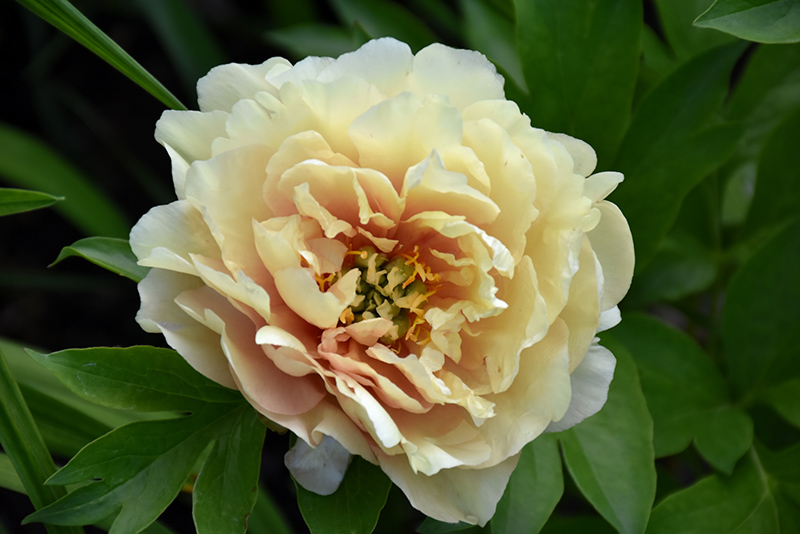Canary Brilliants Peony
Paeonia 'Canary Brilliants'
Height: 3 feet
Spacing: 30 inches
Sunlight:
![]()
![]()
Hardiness Zone: 4a
Other Names: Itoh Peony
Group/Class: Itoh Hybrids
Description:
Light butter yellow blooms with apricot tinged centers, and a lemony fragrance; pointed, dark green foliage is deeply cut; has a shrub-like growth habit, with flowers that resemble a tree peony; does not need staking; best massed in the garden
Ornamental Features
Canary Brilliants Peony features showy fragrant double buttery yellow flowers with peach eyes at the ends of the stems in late spring. The flowers are excellent for cutting. Its deeply cut pointy compound leaves remain dark green in color throughout the season.
Landscape Attributes
Canary Brilliants Peony is an herbaceous perennial with a more or less rounded form. Its relatively fine texture sets it apart from other garden plants with less refined foliage.
This is a relatively low maintenance plant, and should not require much pruning, except when necessary, such as to remove dieback. It is a good choice for attracting bees and butterflies to your yard, but is not particularly attractive to deer who tend to leave it alone in favor of tastier treats. Gardeners should be aware of the following characteristic(s) that may warrant special consideration;
- Disease
Canary Brilliants Peony is recommended for the following landscape applications;
- Mass Planting
- General Garden Use
Planting & Growing
Canary Brilliants Peony will grow to be about 3 feet tall at maturity, with a spread of 3 feet. When grown in masses or used as a bedding plant, individual plants should be spaced approximately 30 inches apart. It grows at a slow rate, and under ideal conditions can be expected to live for approximately 20 years. As an herbaceous perennial, this plant will usually die back to the crown each winter, and will regrow from the base each spring. Be careful not to disturb the crown in late winter when it may not be readily seen!
This plant does best in full sun to partial shade. It does best in average to evenly moist conditions, but will not tolerate standing water. It is not particular as to soil pH, but grows best in rich soils. It is somewhat tolerant of urban pollution. This particular variety is an interspecific hybrid. It can be propagated by cuttings; however, as a cultivated variety, be aware that it may be subject to certain restrictions or prohibitions on propagation.
A NetPS Plant Finder tool


